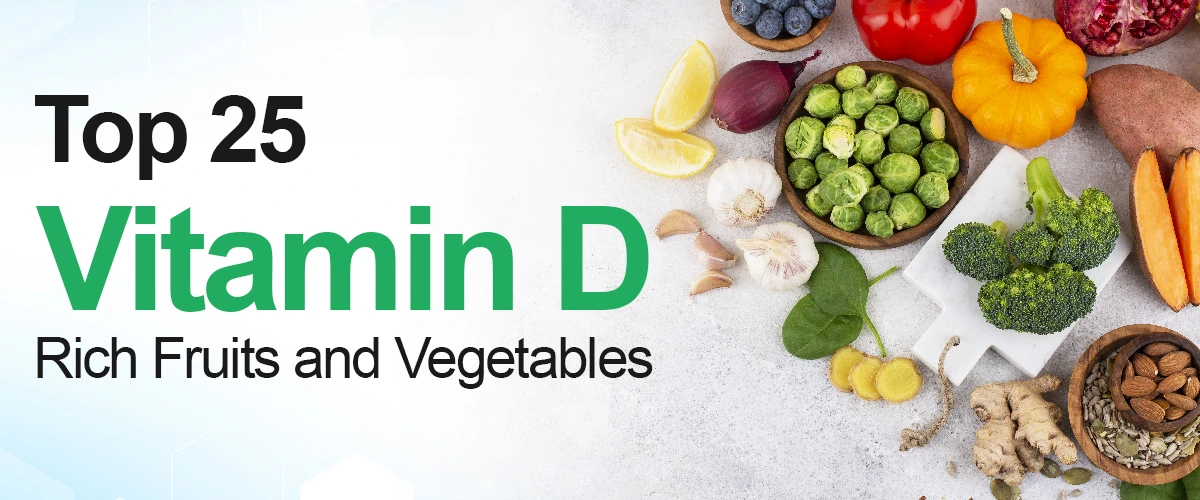
Introduction:
Vitamin D, often referred to as the “sunshine vitamin,” plays a critical role in maintaining overall health. It supports bone health, strengthens the immune system, and aids in calcium absorption. While sunlight is the primary source of vitamin D, there’s growing interest in dietary sources of this vital nutrient. Surprisingly, many people search for fruits with vitamin D content, hoping to find plant-based options to boost their intake. But can fruits provide enough of this nutrient? In this article, we’ll explore the concept of vitamin D-rich fruits, other dietary sources, and practical ways to incorporate them into your daily meals.
Understanding Vitamin D and Its Importance
Before diving into specific foods, it’s essential to understand why vitamin D sources in diet matter. Vitamin D deficiency can lead to a variety of health issues, including fatigue, weakened immunity, and brittle bones. While supplements and animal-based foods are common solutions, many people—especially vegetarians—seek natural, plant-based options like vitamin D in plant-based diets.
Can Fruits Be High in Vitamin D?
When it comes to foods high in vitamin D, fruits are not the first category that comes to mind. Most natural sources of vitamin D come from animal-based foods such as fish, egg yolks, and dairy. However, certain fortified foods and fruit products can help meet your daily requirements.
Top Vitamin D Sources Among Fruits
Let’s look at some fruits and related options that either contain or complement vitamin D sources in diet:
1. Fortified Orange Juice
While not naturally rich in vitamin D, fortified orange juice is one of the most popular plant-based options. It’s enriched with vitamin D and calcium, making it an excellent choice for those looking for alternatives to dairy products. A single glass can provide up to 15% of the daily recommended intake.
2. Avocado and Vitamin D Benefits
Avocado, though not a direct source of vitamin D, contains healthy fats that aid in the absorption of fat-soluble vitamins like D. Pairing foods high in vitamin D, such as fortified juices or cereals, with avocado is a smart way to maximize nutrient absorption.
3. Citrus Fruits and Vitamin D
While citrus fruits such as oranges and lemons are not inherently rich in vitamin D, they complement a vitamin D-rich diet. Their high vitamin C content boosts immune function, enhancing the body’s ability to utilize vitamin D effectively.
4. Does Papaya Have Vitamin D?
Papaya is another fruit often questioned for its nutrient profile. While it’s not a direct source of vitamin D, its high antioxidant content supports overall health and complements fortified foods.
Non-Fruit Options Worth Mentioning
1. Vitamin D in Mushrooms
Although not a fruit, mushrooms deserve a spot in this discussion. When exposed to sunlight or UV light, mushrooms can produce vitamin D naturally, making them one of the best plant-based sources of the nutrient. Add them to salads or stir-fries to boost your intake.
2. Vitamin D Fortified Foods
In addition to fruits, many products like fortified cereals, plant-based milks, and yogurts are enriched with vitamin D. Combining these with fruits like bananas or berries creates a balanced, nutritious snack.
Nutritional Benefits of Vitamin D
Why focus on this nutrient? Here are some key nutritional benefits of vitamin D:
- Bone Health: Helps the body absorb calcium, reducing the risk of fractures and osteoporosis.
- Immune Support: Strengthens the immune system, helping to ward off infections.
- Mood Regulation: Plays a role in reducing the risk of depression and anxiety.
- Muscle Function: Supports muscle strength and recovery, especially important for athletes.
Boosting Vitamin D Naturally
For those who cannot rely solely on food, sunlight is an excellent source of vitamin D. Sunlight and vitamin D synthesis work together to produce this nutrient in the skin. Spending just 15–20 minutes in direct sunlight several times a week can help prevent vitamin D deficiency symptoms such as fatigue, bone pain, and muscle weakness.
How to Incorporate Vitamin D Sources into Your Diet
1. Vitamin D-Rich Breakfast Bowl
- Start with a base of fortified orange juice or plant-based milk.
- Add fresh fruits like papaya or citrus for flavor.
- Top with a handful of sun-dried mushrooms and nuts for added nutrients.
2. Smoothies with Fortified Foods
Blend avocado, a splash of fortified orange juice, and a handful of spinach with your favorite protein powder. This combination supports both vitamin D in plant-based diets and overall nutrition.
3. Snacks and Desserts
Combine fortified yogurt with berries and granola for a quick snack. Add mushrooms to savory dishes like quiches or frittatas for dinner.
Foods to Prevent Vitamin D Deficiency
Beyond fruits, consider these foods high in vitamin D:
- Fatty fish like salmon and mackerel
- Eggs (specifically the yolks)
- Fortified cereals and milk alternatives
- Cheese
By combining these with fresh fruits, you can create balanced, nutrient-dense meals.
FAQs
1. Are there any natural fruits with vitamin D content?
No, most fruits do not naturally contain vitamin D. However, fortified options like orange juice are excellent alternatives.
2. Can vegetarians get enough vitamin D from fruits alone?
No, vegetarians should incorporate fortified foods, mushrooms, and sunlight exposure to meet their vitamin D needs.
3. Is avocado a good source of vitamin D?
Avocado doesn’t contain vitamin D, but its healthy fats help the body absorb fat-soluble vitamins.
4. How much fortified orange juice should I drink for vitamin D?
One glass of fortified orange juice typically provides about 15% of the daily recommended intake.
5. What are the best plant-based sources of vitamin D?
The best options include fortified foods, mushrooms exposed to sunlight, and supplements as needed.
Conclusion:
Although there are no naturally occurring vitamin D-rich fruits, fortified options like orange juice and complementary foods such as mushrooms and avocado can help you maintain healthy levels of this nutrient. Combine these with sunlight exposure and a balanced diet to prevent deficiency and enjoy the full nutritional benefits of vitamin D.
For more interesting blogs, visit our site: https://futuretrendz.co.uk/
Take action today by adding fortified foods and fresh fruits to your grocery list, and don’t forget to enjoy the sunshine!







